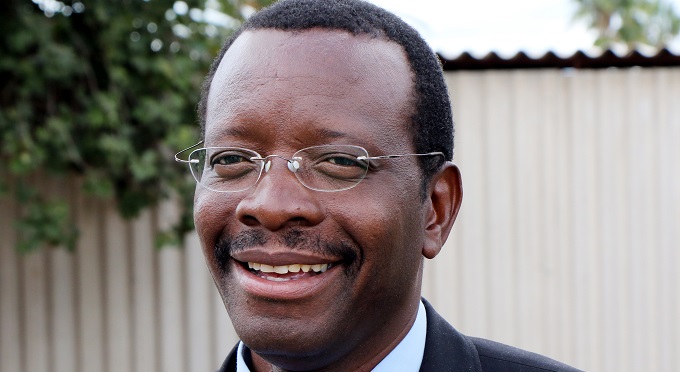Zimbabwe boards need youth for sustainable development

Jaqueline Sande
TRADITIONALLY, boards are composed of retired professionals and these tend to be mostly male. This is based on the mistaken assumption that experience only comes with age. The tendency is to have the same names being recycled repeatedly on various boards for parastatals or blue-chip companies.
Females and young people are seldom nominated to serve on established boards as this has somehow remained a preserve for the proverbial “old boys” who continuously link each other up for placement. It is usually a matter of one’s networking circle, such that it becomes extremely difficult for young professionals to even dream of board placement. However, widening the calibre, diversity and mix of board members is crucial to bring out the best performance for any company. It cannot be healthy for a board to be composed of people of the same generation or gender and mind set on issues.
Such practices give rise to narrow perspective on issues and poor decisions. This article looks at why it is healthier to have more diversity on board by incorporating young people onto boards.
Diversity
In this age of fast changing technology and disruptive innovation, companies have to do all they can to keep up with the pace of a dynamic business environment or risk becoming redundant. Strategic decisions and company direction are mapped in the board room. It serves little purpose to have an “archaic” board trying to direct a youthful management team as clashes are bound to happen. Widening the demography of the board to include younger people, will bring in fresh ideas, which will help the company to swiftly adapt to the fast-changing environment and stay abreast of their competitors in order to survive.
The participation of youths on boards will bring diversity of opinions and mindsets and encourage robust debate leading to well informed decisions. In addition to the fact that younger people are more energetic and enthusiastic about tackling tasks, they are also more techno-savvy, are able to solve problems faster and are not as averse to try new ways of doing things as their older counterparts. This approach can be all that is needed to give a company the competitive edge and stay ahead of its competitors.
Young people on boards will also advocate for the interests of other young people to be elevated and will help companies to widen their scope and pool of influencers in communities. Young people are keener on using modern technology which leads to increased use of modern communication technologies. Modern boards are those that place a high premium on such skills that are necessary for improved board oversight especially in the 4th Industrial Revolution environment in which companies are operating in.
Succession
In the African culture, it is rare for people to plan for succession. Without a proper succession plan in place, companies can fold just from the absence of a solid plan to transfer knowledge to the future generation and ensure continuity when the previous generation is gone. The question to be asked is, who will serve on those boards when the entire generation of the ‘old boys’ on all the important boards is gone? There is a need for continuity and there is no better way than to mix youthfulness with experience thus ensuring that the younger generation is exposed to decision making processes at an early stage in their career. Incorporating young people on boards paves way for the transfer of the wealth of knowledge and experience from the older generation to the younger generation thus guaranteeing sustainability of the organisation.
Empowerment
Involving young people on boards, empowers them and exposes them to information and opportunities that they would not otherwise have access to. This in turn gives them a sense of ownership in respect of decisions made and thus it becomes easier to gain the buy in from their peers. Decisions made by the older and more seasoned professionals may be rejected merely on the basis of perceived varying interests and suspicion that the older generation does not have the interests of the young generation at heart. Including young people in key decision-making processes sharpens their strategic thinking skills and develops their leadership skills. Sitting on a board is one of the most influential positions one can hold and this enables young people to contribute to the discourse of their community by being a part of key decision-making processes.
How do we get more young people to sit on boards?
Normally, board appointments come along through one’s networking circles. This is the reason why we have the same board members featuring in almost every board and rotating. This method of selection naturally closes out the youth making it virtually impossible for young people to find themselves serving on boards. One way to increase the number of young people serving on boards is to adopt a transparent and more inclusive way of recruiting board members. Board placements cannot continue taking place on golf courses and your local watering holes where only peers get to meet, network and recommend each other for board placement. Platforms such as IODZ and the Corporate Governance Unit (CGU) are a good way of casting the net wider and give younger people access to the selection process for board placements.
Young people are also advised to be proactive, develop their competencies and widen their scope of networking so as to gain more access to board placement opportunities. It is crucial to remember that this is not just about appointing young people to the boards just for the sake of it, but it is about appointing young people on merit and with the right qualifications, experience and leadership potential required for one to fulfil their mandate. It is also time for the youth to be bold and aggressive in their ambition and not wait for opportunities to come knocking at their door. Building a strong professional network is an absolute must. Once aboard placement is secured it is critical for one to keep their eyes on the ball and not lose focus.
A board role is a serious responsibility which requires commitment and hard work. If you deliver good results as a board member it is easier to be recommended for another board placement, but if you mess up, you will ruin not only your reputation but also ruin the chances for your peers to be appointed in future.
– Jaqueline Sande is a lawyer, strategist and a councillor at Institute of Directors Zimbabwe (IODZ). Article was originally published by the IODZ website.












Comments